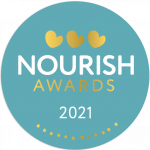Kindness is the buzz word on everyone’s lips at the moment, so what exactly is this movement and why are we so obsessed with it? After all, kindness isn’t a new concept, and yet it’s been consistently cropping up in the news recently.
In the words of Maya Angelou, “People will forget what you did, they will forget what you said, but they will never forget how you made them feel.”
This feeling is a big aspect of what makes kindness so infectious. Feelings are universal and no matter how big or small the act is, anyone has the power to make someone else’s day.
Emotional impact hasn’t been the sole motivator of this modern movement though. Whilst kindness can’t be quantified, it appears more people are actively seeking out positive news — and the media is delivering! Thanks to social channels, movements such as Random Acts of Kindness, Pay It Forward and The Kindness Rocks Project are gaining traction on a global scale. The best bit about this? It’s a snowball effect. The more kind acts we hear about, the more motivated we are to be kind.
Kindness is contagious
New research commissioned by the British Red Cross demonstrates the general consensus that kindness is contagious. Amongst the 2000 UK adults surveyed, 94% believe that being kind encourages others to pay it forward. Alongside this, 83% of the sample also believe they’ve performed an act of kindness in the last year — so that’s a whole lot of kindness inspiration being spread!
Kindness is also viewed as key for community cohesion, with 92% saying they appreciate kindness from their neighbours. It turns out that following the crowd isn’t always a bad thing — humans are social animals and the results from the survey demonstrate the positive impact of giving, receiving and witnessing acts of kindness.
Pay it forward
Paying it forward benefits all parties involved — although acts of kindness should always stem from a place of selflessness, the positive side effects felt by the helper are also worth highlighting:
-
Kindness makes us happier:
Performing good deeds for others makes us happier on an emotional and biochemical level. The science behind this suggests that when we help others, we experience elevated levels of dopamine in the brain, which is commonly referred to as a ‘Helper’s High’.
Doing good deeds can provide more than just a temporary boost, they can even alter our whole outlook on life! Sean Anchor, a happiness researcher, has demonstrated how we can re-wire our brains to be more positive just through dedicating two minutes a day, for 21 days, to random acts of kindness.
-
Kindness is good for our heart:
This isn’t just metaphorically speaking! Often we describe kind people as having big hearts, and whilst this isn’t scientifically correct, being kind can actually be cardio-protective. Kindness is often accompanied by a feeling of emotional warmth, which in turn stimulates the release of oxytocin in our system. This heart-healthy hormone is thought to help us out by lowering blood pressure.
Kindness is a gift that everyone can afford to give
At Gosh! we believe that we should be kind to our bodies, only eating real, harm-free and wholesome ingredients that mother nature provides. We want to extend this message and way of life to our fellow humans, animals and environment.
Small acts of kindness can make a big impact — how can you dedicate two minutes of your day to someone else?
Life’s amazing, let’s enjoy it, together.

